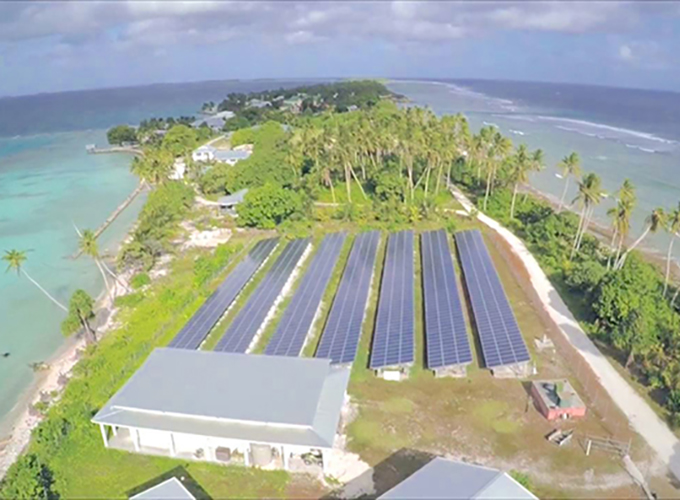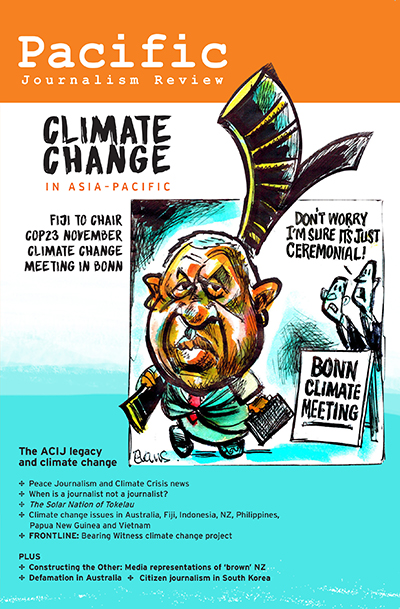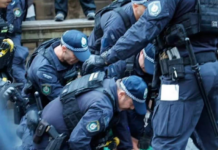
Pacific Media Watch Newsdesk
Climate change research ranging from Australia and Indonesia to Fiji and Vietnam feature in the latest Pacific Journalism Review in the first publication to focus on media and global warming in the region.
The edition, published next week, is timely as Fiji prepares to co-host the COP23 global climate change summit in Bonn, Germany, in November.

Canadian media academic professor Robert A Hackett argues for an overhaul of the approach by journalists and media groups to “address the need for public engagement and a sense of urgency in the context of global climate crisis”.
He advocates peace journalism as a component of a strategy for “both journalists and the public to recover a sense of political agency”.
New Zealand investigative journalist Phil Vine, now attached to Greenpeace as a journalist, writes about the dilemmas facing seasoned journalists when joining non-government organisations in an independent media role.
“In order to stem plunging levels of credibility and adapt to the fast changing digital environment while recognising existing biases within traditional reporting, it may be that mainstream media needs to embrace a more inclusive attitude towards so-called ‘NGO journalism’,” he writes.
Documentary maker Ulrich Weissbach offers a case study on his film The Solar Nation of Tokelau while David Robie and Sarika Chand also file a case study on the “Bearing Witness” climate change collaboration between the Fiji-based University of the South Pacific and AUT’s Pacific Media Centre by postgraduate student journalists.
Staff and researchers at USP’s Pacific Centre for Environment and Sustainable Development and School of Government, Development and International Affairs have contributed several papers in the peer-reviewed edition.
Introducing this edition, Wendy Bacon and Chris Nash write in the editorial about the contribution and demise of the Australian Centre for Independent Journalism (ACIJ), which has been a trailblazer for university based investigative journalism for a quarter century.
Paying tribute to the many journalists who have contributed over the years and the collaboration between ACIJ and PJR, they write: “It is important that the sense of crisis in the journalism profession and the threat of increasing concentration of mainstream media ownership does not overwhelm the many worthwhile initiatives and projects that continue to be undertaken.”
In the journal’s unthemed section, research papers include defamation and the “hazards of relying on the ‘ordinary, reasonable person’ fiction”, news media representations of the “brown” community in New Zealand, and citizen news podcasts and the counter-public sphere in South Korea.
This edition has been co-edited by professors David Robie (AUT) and Chris Nash Monash), Dr Shailendra Singh (USP) and Wendy Bacon (PMC) with associate editor Dr Philip Cass (Unitec).
Full papers from the edition are already available online at the INFORMIT database.












































[…] https://asiapacificreport.nz/2017/07/28/climate-change-in-asia-pacific-advocacy-journalism-in-pjr/ […]
Comments are closed.